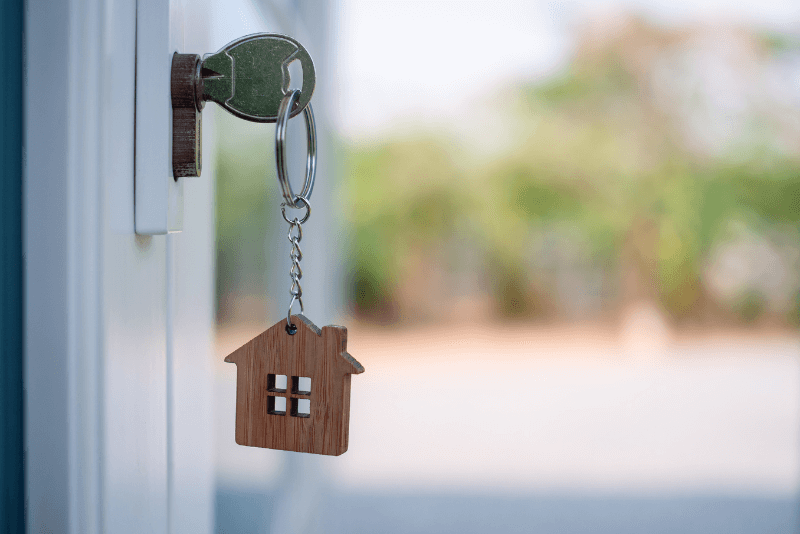
Selling your home while planning to continue living in it is a scenario that seems unconventional but is feasible under certain circumstances. This approach can offer a solution for homeowners who need to sell for financial reasons but are still deciding whether to move out. Understanding how this works is crucial for making an informed decision.
Sell My House and Stay In It – What Do I Need to Know?
While the question may seem hard to answer, here’s everything you need to do so.
Understanding Sale-Leaseback
This is a common arrangement where you sell your home and then lease it back from the new owner. It allows you to access your home equity and remain in the home as a renter.
Financial Implications
In many cases, real estate investors or companies might offer a cash offer for your home, giving you a lump sum.
After selling, you’ll need to pay rent, which will be a new expense if you previously owned the home outright or had mortgage payments.
Credit and Loan Considerations
Your credit score can be important if the new arrangement involves applying for a leaseback or another form of lease agreement. If you still have a mortgage, you’ll need to discuss the sale with your mortgage lender, as some loans may have clauses that affect your ability to do a leaseback.
Can I Stay In My House After Selling?
Some buyers may agree to let you stay in the home after closing temporarily. This can be negotiated as part of the real estate transaction.
If this doesn’t align with your needs, a more formal arrangement is a leaseback, where you sell the house but sign a lease to stay as a tenant for an agreed-upon time.
Leaseback Terms
The leaseback agreement will outline the length of time you can stay in the house and the rent you’ll pay.
Legal and Tax Considerations
Be aware of how property tax responsibilities might shift post-sale. It’s advisable to consult a real estate attorney to understand the legal aspects of such arrangements.
How to Stay In Your House After Selling
For many homeowners, selling their house while continuing to live in it can offer the best of both worlds – accessing the equity from their home sale without moving out immediately. Understanding the options available for this arrangement is key.
Short-Term Free Stay
A short-term free stay, often referred to as a “rent-back” agreement, is a temporary arrangement where the seller remains in the home for a set period post-sale without paying rent.
Key Features of Short-Term Free Stay
- Negotiation at Sale: This arrangement is typically negotiated as part of the sale process, often to accommodate the seller’s need for additional time before moving out.
- Duration: The stay is usually short, ranging from a few days to a few months.
- Cost: Generally, the seller does not pay rent for this period but might be responsible for upkeep and utilities.
The Leaseback Option
Leaseback is a more formal and longer-term arrangement that allows you to sell your home and then lease it back from the new owner.
How Leaseback Works
- Lease Agreement: After selling the home, you enter into a lease agreement with the new owner, becoming a tenant in your former home.
- Rent Payments: You agree to pay rent, which can be based on current market rates or a mutually agreed-upon amount.
- Duration and Terms: The lease terms, including duration, rent amount, and other conditions, are outlined in the leaseback agreement.
Home Reversion
Home reversion is a financial arrangement where you sell a portion or all of your home to a company in return for a lump sum or regular payments while retaining the right to live in it.
Understanding Home Reversion
- Partial Sale: You can sell a part or all of your property.
- Right to Reside: You retain the right to live in your home rent-free or for a nominal rent until you move out or pass away.
- Reversion Company’s Role: The reversion company becomes a partial or full property owner but allows you to stay as per the agreement terms.
Each option offers different benefits and suits different needs. Whether you need time to find a new home, access your home equity without relocating, or secure financial stability, these arrangements can provide viable solutions.
It’s essential to weigh each option carefully and consider your long-term housing and financial goals before the closing date.
Need to Sell Your House And Stay Living in It?
We make it simple.
Just fill out the form below or give us a call at: (612) 260-5577 to get your free, no-obligation cash offer!
Who Will Buy My House and Rent It Back?
When considering selling your home and renting it back, it’s important to know who might be interested in this arrangement. Various entities and individuals may see value in such a deal, each with different objectives.
Potential Buyers for Rent-Back Agreements
1. Real Estate Investors: These buyers often look for properties they can rent out. They may be attracted to having an immediate tenant (the former homeowner) in place.
2. Property Management Companies: Some companies specialize in buying and managing homes as rental properties. They might be interested in a sale-leaseback arrangement.
3. Home Buying Companies: Businesses like Mill City Home Buyers sometimes offer options to sell your house for cash and then rent it back to the sellers.
4. Individual Buyers: In some cases, private buyers looking for investment properties may be interested, especially if they are planning to move into the home after a period of time.
Factors Influencing Buyer Interest
- Market Conditions: In a seller’s market, finding a buyer interested in a rent-back might be easier due to the high demand and home value of properties.
- Property Appeal: Well-maintained homes in desirable locations are more likely to attract such buyers.
- Financial Terms: The purchase price of the rent-back agreement can also play a significant role.
How Much Rent Will I Pay If I Sell My House and Live In It?
Determining the rent amount in a sell-and-rent-back scenario varies based on several factors. It’s essential to understand these to anticipate your financial commitments post-sale.
Factors Affecting Rent Amount
- Market Rental Rates: The rent is often based on current market rates in your area, considering the size, condition, and location of your home.
- Agreement with Buyer: The rent can be negotiated as part of the sale and leaseback agreement. It might be influenced by the buyer’s mortgage payments and desired return on investment.
- Lease Terms: The length of the lease, upkeep responsibilities, closing costs, and other terms can also affect the rental price.
Rent Estimation
Look at similar rental properties in your area to understand potential rent amounts. A realtor or real estate agent can provide valuable insights into fair market rental rates.

Documents For Selling a House and Then Living In It
When you decide to sell your house and stay as a tenant, specific legal documents are necessary to formalize both the sale and the subsequent rental agreement.
Essential Documents
- Standard Sale Documents: These include the listing agreement, purchase and sale agreement, and any disclosures required by law.
- Leaseback or Rent-Back Agreement: This contract outlines the terms of your stay in the home post-sale, including rent amount, lease duration, and tenant responsibilities.
- Closing Documents: You’ll sign these documents at the closing, transferring home ownership to the buyer.
Legal Consultation
It’s advisable to consult with a real estate attorney to ensure all agreements are legally sound and protect your interests as a seller and tenant.
Pros and Cons of Selling a House Then Living In It
Opting for a sale-leaseback arrangement, where you sell your home and continue living in it as a tenant, can offer advantages and challenges. Understanding these can help you make a well-informed decision.
Pros of Selling and Staying
- Access to Home Equity: Selling your home provides immediate access to the equity you’ve built, which can be useful for debt consolidation, investing, or other financial needs.
- Reduced Responsibility: As a tenant, you may have fewer property maintenance and upkeep responsibilities, depending on your lease terms.
- Flexibility: This option can be ideal if you need to sell for financial reasons but aren’t ready to move, offering a transitional period.
Cons of Selling and Staying
- Loss of Ownership: Once you sell, you lose homeowner privileges, including the ability to change the property.
- Rent Obligations: You’ll need to budget for monthly rent payments, which could be a new expense if your mortgage was previously paid off.
- Temporary Solution: Rent-back arrangements are typically temporary, so you’ll eventually need to find a new place to live.
Conclusion
Selling your house while continuing to live in it is a unique solution that can provide financial relief and transitional convenience. However, weighing the pros and cons carefully is essential to ensure it aligns with your long-term goals and financial situation.
Mill City Home Buyers offers a straightforward and hassle-free solution if you want to rent or sell your house and are exploring options.
At Mill City Home Buyers, we buy houses in St. Paul and are known as cash home buyers in Minneapolis. We understand the unique challenges of selling a home and offer fair and fast cash offers to simplify the process for you.
If you want a fair sale price and an efficient way to sell your home, contact us today and discover how we can help you achieve your property goals easily and confidently.
